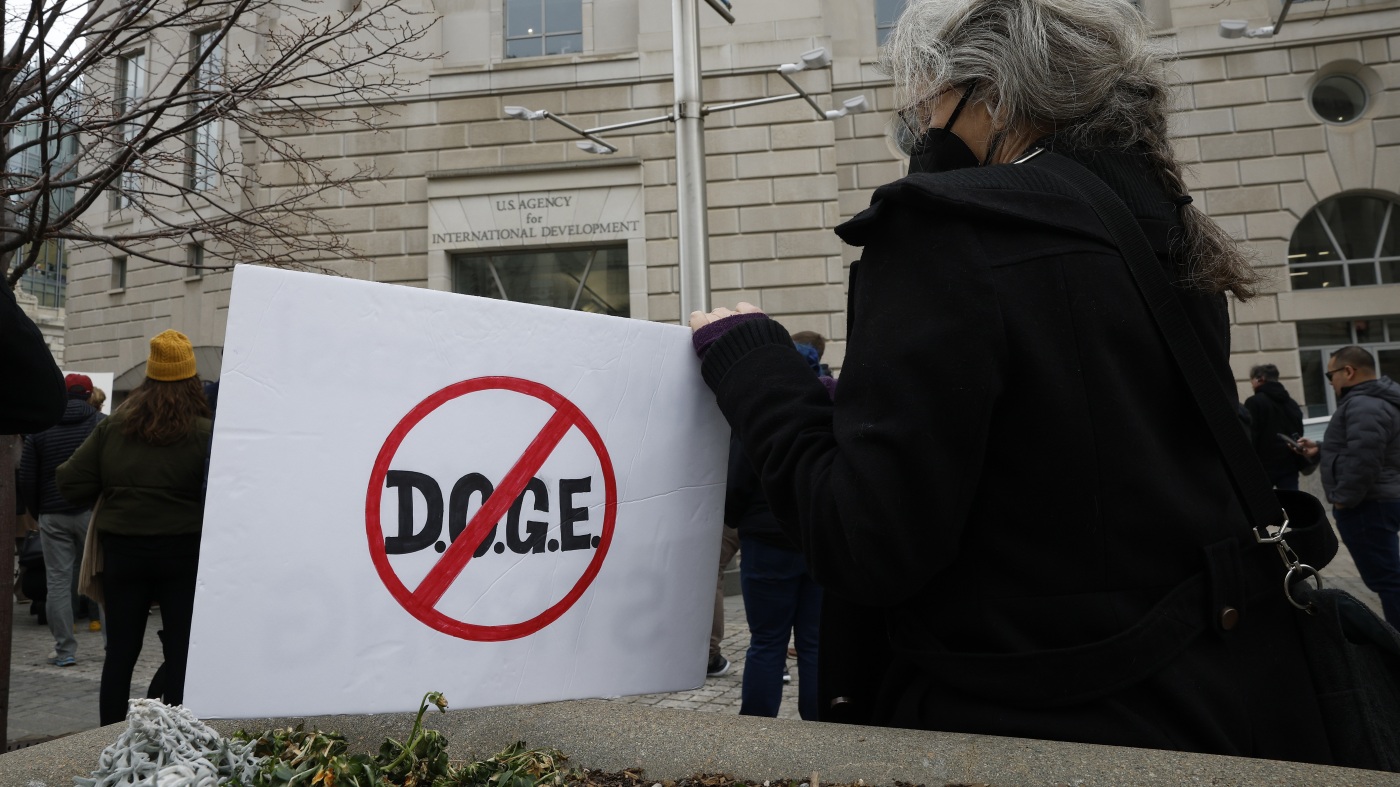Don’t fall for it — the federal employee ‘buy-out’ plan is a trick
To scare federal workers into resigning, the email conjures threats that likely exceed the administration’s legal authority.

New political appointees at the Office of Personnel Management emailed millions of federal workers last week suggesting that they resign. Although some media accounts described this as a “buy-out,” it is nothing of the kind.
In fact, it is a trick, promising eight months’ pay for little or no work while making no promises that OPM has any authority to keep. And like other actions by the new Trump administration, it flagrantly disregards the law and sweeps with such a broad, indiscriminate brush that it threatens the nation with enormous harm in pursuit of a few perceived bad apples.
President Trump and other Republicans campaigned on demonizing federal workers. In a Wall Street Journal op-ed, Elon Musk and Vivek Ramaswamy declared that “drastic reduction in federal regulations provides sound industrial logic for mass head-count reductions across the federal bureaucracy.” Although this played well with some voters, it bears little resemblance to reality.
The vast majority of federal employees are engaged in activities designed to protect the public’s safety and well-being. Reducing the scope of federal regulation will not reduce the need for rangers to ensure the safety of visitors to national parks and monuments. Nor will it reduce the need for nurses, doctors and other staff at veterans’ hospitals, or claims representatives at the Social Security Administration. And even if we greatly shrink the number of federal regulations, we surely will not drop the ones prohibiting the importation of nuclear, chemical or biological weapons that could harm Americans.
The federal workforce is already stretched dangerously thin in many areas. This shortfall has resulted in significant failings: minimal inspections for dangerous items at our ports, delays in processing Social Security applications and tax refunds, superficial meat inspections and so forth. Major reductions in federal employment would likely magnify existing problems and cause new ones.
The absolute number of federal employees has risen over time as the country’s population has grown and with it the number of park visitors, Social Security claims, consumers of meat requiring inspection and potential victims of consumer scams. But as a share of the total U.S. population, the federal workforce has steadily declined. When President Ronald Reagan took office in 1981, agencies other those now in the Departments of Defense, Veterans Affairs and Homeland Security employed 385 people for every 100,000 Americans. This year, the same agencies will have just 251 workers per 100,000 people in the country.
Nor are federal workers an insular group cloistered in Washington. Only 7.3 percent of federal employees work in D.C., with four out of five based outside the Washington metropolitan area.
While parts of some agencies may be overstaffed, OPM’s blanket solicitation of resignations will not hit those agencies. Also, the federal workers most likely to leave will be the most valuable ones. Those whose skills were being undervalued by the federal government will be snapped up by the private sector. These will be the hardest workers for the government to replace or do without — experienced air traffic controllers or meat inspectors are not in plentiful supply. It is precisely this need for targeting that prompted Congress to limit buy-outs to situations where a particular agency has found it necessary, prepared a plan and had it approved by OPM.
OPM, not wanting to conduct an analysis of which federal workers are and are not needed, has essentially constructed a trick. It broadly hints — but never commits to saying — that workers who resign by Feb. 6 will be paid for the rest of the fiscal year even without working. The message asks resigning workers to state that they understand that their agencies will “likely” change their responsibilities “including moving, eliminating, consolidating, reassigning my position and tasks, reducing my official duties, and/or placing me on paid administrative leave until my resignation date.” But OPM nowhere promises to do any of those things — presumably because it lacks the authority to do so.
Hard-pressed agencies are unlikely to give up existing workers so easily while still paying their salaries and hence unable to seek replacements. In any event, federal law limits administrative leave to 10 days in any calendar year, so the agencies could not deliver even if they wanted to.
OPM does make one promise that is plainly unlawful by claiming that “if you resign under this program, you will retain all pay and benefits regardless of your daily workload and you will be exempted from all applicable in-person work requirements” until Sept. 30. The current appropriations act extends only through March 14. The Antideficiency Act, first enacted in 1884, prohibits any government “officer or employee” from involving the “government in a contract or obligation for the payment of money before an appropriation is made unless authorized by law.” OPM cites no law authorizing it to make this commitment in advance of appropriations.
As with the administration’s funding freeze memo, OPM’s email contains boilerplate promises in order to follow the law. But when the very essence of the plan is contrary to law, and likely contrary to many collective bargaining agreements, these assurances should not be taken seriously.
To scare federal workers into resigning, the email conjures threats that likely exceed the administration’s legal authority. It declares this solicitation to be part of its “federal workforce reorganization efforts” and warns that “the majority of federal agencies are likely to be downsized through restructurings, realignments, and reductions in force.” Although Congress has authorized presidents to develop plans to reorganize the executive branch, the most recent of these expired in 1984 and even then required congressional approval for implementation.
The message states that “these actions are likely to include the use of furloughs and the reclassification to at-will status for a substantial number of federal employees.” This is easy to translate as “quit or we will reclassify and then fire you” and reflects the pledge by Russell Vought, Trump’s nominee to run the Office of Management and Budget, that federal workers be “traumatically affected.”
By sending this email immediately after the administration blatantly disregarded federal law to fire 17 inspectors general without notice, many federal workers will expect similar disregard of civil service statutes such as the one protecting them “against arbitrary action, personal favoritism, or coercion for partisan political purposes.”
In the near term, this policy will undermine delivery of numerous services vital to the well-being of Americans and the economy. If all the workers persuaded to resign do in fact leave on Sept. 30, vital government functions may cease altogether for weeks or months until replacements can be hired and trained.
Over the long term, this ugly, cavalier treatment of committed civil servants will make it harder for the federal government to attract and retain talented people, likely forcing it to raise salaries to compensate for the lack of job security.
For a group of people claiming to champion “government efficiency,” this is a dreadful start.
David A. Super teaches at Georgetown Law.















































































